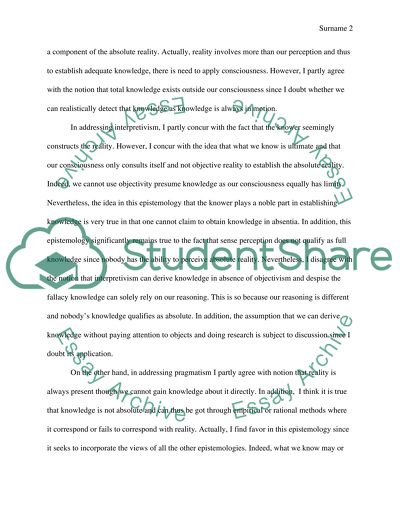Epistemologies Essay Example | Topics and Well Written Essays - 500 words. Retrieved from https://studentshare.org/miscellaneous/1603914-epistemologies
Epistemologies Essay Example | Topics and Well Written Essays - 500 Words. https://studentshare.org/miscellaneous/1603914-epistemologies.


